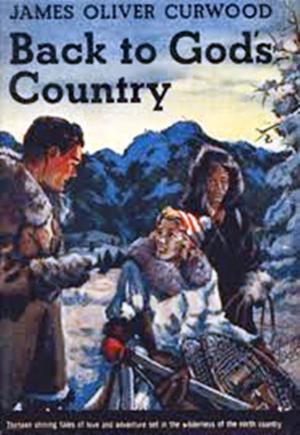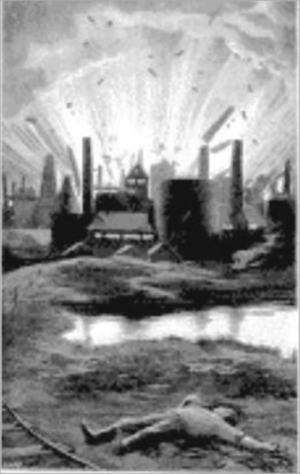| Author: | John Arthur Barry | ISBN: | 1230000140338 |
| Publisher: | WDS Publishing | Publication: | June 9, 2013 |
| Imprint: | Language: | English |
| Author: | John Arthur Barry |
| ISBN: | 1230000140338 |
| Publisher: | WDS Publishing |
| Publication: | June 9, 2013 |
| Imprint: | |
| Language: | English |
The pastoral life for both employer and employed has within the last few years altered radically, and altered for the worse. At one time a youngster, energetic, active, and with an average supply of common sense, added to a liking for the bush, might, with fair confidence, look forward to something of a career. From jackaroo, or even from the men's hut, in exceptional cases, to overseer, from overseer to manager, while with the prime of life yet some distance away, was nothing unusual. And the salaries were very different at the top of the tree then, to the beggarly pittances now offered. Most of the stations were owned by the individual, as against the company. Also, the seasons were, on the whole, better; nor were the multitudinous pastoral plagues of the present day nearly so much in evidence as they are now. There was more room and fewer fences, and, consequently, stock, both large and small, throve better, and paid better. In those spacious days a drought in one district, in place of, as now, meaning decimation to those concerned, meant simply an emptying of the stock on to more favoured portions of the State; any State, to "travel for grass and water," until better times came on the afflicted runs. Nor, so far as could be seen, was anybody much the worse for the proceeding. Now, however, what with travelling stock routes, of ridiculous inadequacy of width; permits, declarations, applications, and a mass of red tape, generally a man hesitates ere allowing his stock off his run, not to look for grass or water, because that would be looking for the impossible, but merely to travel to market, if it happen to be a distant one.
At the present day it is extremely difficult to place a youngster on a station, with a view to having him taught a knowledge of stock and station life. The old-time squatter had no objection to having half-a-dozen or so of these young men in the "barracks;" but his modern prototype, the "Company," or the "Bank," has little or no use for pastoral cadets of the kind. They require quarters, a servant to wait upon them, and are thus a source of extra expense. Besides, since "station" has given way to "estate," the hundreds of thousands of far flung acres to the consolidated blocks of freehold, a manager and a working overseer, with three of four men, all of them paid at the lowest rates, are made to do the work of the old-time big staff. Five and-twenty or thirty years ago, however, station life for the neophyte was a pleasant enough experience. No matter how green he might be, he took his share in the work from the very jump. Ignorant of the saddle though he were, he was at once put on a horse's back—and often as promptly off it. He assisted in mustering; lamb-marking, burr-cutting, fence repairing, branding, and all the rest of the ordinary station work. Then, after a few years' experience, if smart, he might probably find himself offered a billet as assistant overseer on some large property, should there be no room on the one he had been "serving his time" upon. The work was often desperately hard, beginning with the sun, and ending long after the stars were shining. But the fare in the barracks was good, and plentiful, and now and again, when the busy seasons were over, would come long intervals of comparative leisure, during which the men who intended to stick to the business read the best authorities they could get hold of on stock; studied the Land Acts of their State, even becoming more complicated and bewildering, and otherwise fitted themselves for what was then looked upon as the highly responsible and honourable position of station superintendent.
The pastoral life for both employer and employed has within the last few years altered radically, and altered for the worse. At one time a youngster, energetic, active, and with an average supply of common sense, added to a liking for the bush, might, with fair confidence, look forward to something of a career. From jackaroo, or even from the men's hut, in exceptional cases, to overseer, from overseer to manager, while with the prime of life yet some distance away, was nothing unusual. And the salaries were very different at the top of the tree then, to the beggarly pittances now offered. Most of the stations were owned by the individual, as against the company. Also, the seasons were, on the whole, better; nor were the multitudinous pastoral plagues of the present day nearly so much in evidence as they are now. There was more room and fewer fences, and, consequently, stock, both large and small, throve better, and paid better. In those spacious days a drought in one district, in place of, as now, meaning decimation to those concerned, meant simply an emptying of the stock on to more favoured portions of the State; any State, to "travel for grass and water," until better times came on the afflicted runs. Nor, so far as could be seen, was anybody much the worse for the proceeding. Now, however, what with travelling stock routes, of ridiculous inadequacy of width; permits, declarations, applications, and a mass of red tape, generally a man hesitates ere allowing his stock off his run, not to look for grass or water, because that would be looking for the impossible, but merely to travel to market, if it happen to be a distant one.
At the present day it is extremely difficult to place a youngster on a station, with a view to having him taught a knowledge of stock and station life. The old-time squatter had no objection to having half-a-dozen or so of these young men in the "barracks;" but his modern prototype, the "Company," or the "Bank," has little or no use for pastoral cadets of the kind. They require quarters, a servant to wait upon them, and are thus a source of extra expense. Besides, since "station" has given way to "estate," the hundreds of thousands of far flung acres to the consolidated blocks of freehold, a manager and a working overseer, with three of four men, all of them paid at the lowest rates, are made to do the work of the old-time big staff. Five and-twenty or thirty years ago, however, station life for the neophyte was a pleasant enough experience. No matter how green he might be, he took his share in the work from the very jump. Ignorant of the saddle though he were, he was at once put on a horse's back—and often as promptly off it. He assisted in mustering; lamb-marking, burr-cutting, fence repairing, branding, and all the rest of the ordinary station work. Then, after a few years' experience, if smart, he might probably find himself offered a billet as assistant overseer on some large property, should there be no room on the one he had been "serving his time" upon. The work was often desperately hard, beginning with the sun, and ending long after the stars were shining. But the fare in the barracks was good, and plentiful, and now and again, when the busy seasons were over, would come long intervals of comparative leisure, during which the men who intended to stick to the business read the best authorities they could get hold of on stock; studied the Land Acts of their State, even becoming more complicated and bewildering, and otherwise fitted themselves for what was then looked upon as the highly responsible and honourable position of station superintendent.















